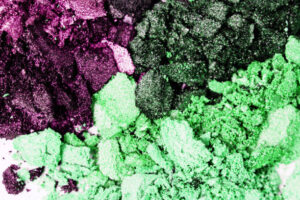
The scientific name for the cherry is Prunus. It is a member of the Rosaceae family. It is found in temperate northern areas, such as Western Asia and Europe. The genus Prunus includes two varieties: sweet cherry (P. The genus Prunus consists of two types: sweet cherry (P. The tart cherry, on the other hand, is a Montmorency variety.
Cherries and their Uses
These are some of the health benefits that cherries can provide:
Cherry can be used to treat diabetes
Cherries are rich in antioxidants that can help reduce blood glucose levels. In animal studies, it was found that cherry-containing diets reduced glucose levels and helped control type 2 diabetics. Alcohol extracts from cherries have also shown hypoglycaemic activity or glucose-lowering action in laboratory studies. The use of cherries to treat diabetes is a natural option. 4Consult your doctor before using any herbal remedy for diabetes.
Cherries can be used to help you sleep.
The juice from tart cherries can help older adults who are healthy but have insomnia, i.e., are unable to sleep. The juice of the sour cherry may contain nutrients that can help to improve sleep continuity. Anthocyanins, another bioactive component found in cherries, may protect brain cells from the damaging effects of oxidative stress.
Cherries can be used to treat gout
Cherries have antioxidant and anti-inflammatory properties that can help manage gout. Gout is the accumulation of uric acids in joints. Cherries, along with their other components, may reduce the spread and uric levels in plasma.
Cherry skins can be used for a variety of purposes
The cherry extract may slow down the skin’s aging process. Cherry extract may reduce oxidative stress because of its antioxidant properties. The section of sweet cherries could be used in skincare products.
Cherries can be used to treat cancer
Due to the nutrients in sweet cherries, such as fibers, carotenoids, and vitamin C, they have anti-cancer effects. Cherries contain a high level of dietary fiber, which is associated with a lower risk of cancer. One study confirmed that cherries may be able to help in site-specific inhibition of colon cancer. 1,3 Cancer requires medical diagnosis and treatments. Consult your doctor before using any fruit or herb.
Cherries can be used in many other ways
Cherries are rich in antioxidants and anti-inflammatory compounds that can help to prevent muscle pain, inflammation, and loss of strength.
According to a study, cherries can help reduce blood pressure and inflammation.
Clinical studies have shown that eating cherries can help with sleep, mood, and diabetes. They may also improve blood lipids, arthritis, cognitive function, and blood lipids.
Some studies demonstrate the health benefits of beetroot in different conditions. However, these studies are not sufficient, and more studies are needed to determine the full extent of the benefits beetroot has on the human body.
Tart cherries are rich in phytochemicals, according to many studies. Eating cherries may improve cognitive and motor functions. Eating cherries may also show a decrease in age-related inflammation and improve working memory. Cherry may promote healthy aging.
How To Use Cherries?
Sweet cherries are typically consumed fresh. You can juice, freeze, brine, dry, and can them. They are also used for baking and cooking.
Use tart cherries to make juice, drinks, jams, and pastries.
Consult your Ayurvedic doctor before eating cherries in large amounts. The Ayurvedic physician will prescribe the right dosage and form for your particular health condition. Do not replace or discontinue a modern treatment with ayurvedic/herbal medicine without consulting a doctor.
Cherries Side Effects
Ayurvedic physicians often ignore the side effects of cherry juice because of its nutraceutical benefits. The main side effects of cherries include kidney injury and allergic reactions.
The consumption of cherries can cause acute kidney failure in patients with chronic kidney disease.
If you have any negative reactions, contact the Ayurvedic doctor who prescribed it. The Ayurvedic physician will know how to treat you.
Cherries and Precautions
Cherries can be considered safe when consumed in the recommended doses. General precautions should accompany cherry consumption.
It is safe to eat cherries during pregnancy. Consult your Ayurvedic doctor if you experience any pregnancy-related symptoms.
Cherry consumption is not recommended for patients with chronic kidney disease. Acute kidney injury can occur, which is a sudden kidney failure that damages normal kidney filtration. The safety of cherries cannot be questioned, but patients and Ayurvedic physicians must be aware of the potential dangers due to their nutraceutical properties.
10 Children should be protected and take extra precautions to avoid allergic reactions. Consult your Ayurvedic doctor if the response persists for longer than a few days.
Please don’t try to cure yourself with herbs. Ayurvedic herbal remedies may be beneficial, but it’s best to consult an Ayurvedic doctor before using any herbs for their health benefits.
Drug Interactions with Other Drugs
Cherry juice combined with a drug called allopurinol (which manages gout and various types of kidney stones) reduces the risk of gout attacks. Combining cherries with the drug allopurinol, which is used to treat gout or kidney stones of various types, reduces the likelihood of an attack.
What are the health benefits of cherries?
Cherry consumption can help manage diabetes and arthritis. It lowers blood cholesterol and improves mood and cognitive function.
Contact your doctor to receive a proper diagnosis and treatment before eating cherries.
Can cherries slow down skin aging?
Yes. Anthocyanin is a powerful antioxidant that may help to slow down skin aging. Cherry juice may have skin benefits. 7 If you experience any skin damage or condition, consult your dermatologist.







